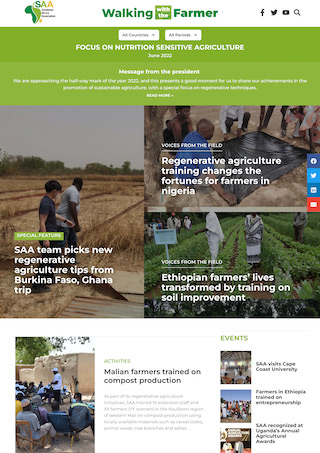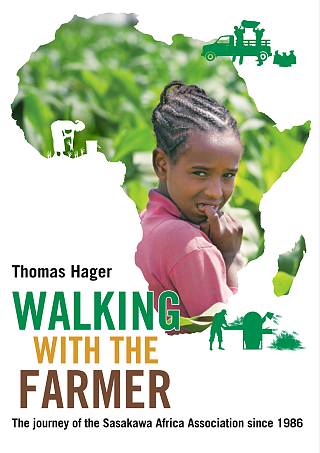The joint proposal by the African Development Bank and SAA for improving the livelihoods of small-scale rice farmers in Benin and mitigating climate change has been approved by the PHRDG program under the support of the Government of Japan

Improving the Livelihoods of Small-Scale Rice Farmers in Benin
and Mitigating Climate Change
The African Development Bank and the Sasakawa Africa Association, in partnership with SoftBank Corp., proposed to the Government of Japan “the Project for Improving Rice Productivity by Decarbonizing Cultivation in the Republic of Benin.” As of January 20, 2023, the project was adopted as a project of the Trust Fund for the Japan Policy and Human Resources Development Grant (PHRDG) set under the partnership between the Government of Japan and the African Development Bank. The project will be implemented jointly by the African Development Bank, the Sasakawa Africa Association, and SoftBank Corp., for three years with a total amount of US$ 900,000.
The agriculture in the Republic of Benin is the most important sector, accounting for 36% of GDP and 70% of total employment. While demand for rice has increased in recent years, especially in urban areas, domestic production has been sluggish, resulting in the import of almost half (1.44 million tons) of the rice required. Since there is a limit to how much rice production can be increased by expanding the area planted in the future, improving land productivity is an urgent issue. In addition, as the global impact of greenhouse gases (GHGs) emitted from paddy fields becomes clearer, there is a need to develop rice production based on the premise of decarbonization. Under these circumstances, the project aims to improve productivity of 12,000 small-scale rice farmers by 40% and their agricultural income by 25% in three years by demonstrating and disseminating decarbonized rice cultivation technologies targeting 12,000 hectares of irrigated paddy fields located in seven agricultural development poles in the country, while it also aims to contribute to climate change mitigation by reducing GHGs emissions and increasing soil carbon sequestration.
The project will focus on innovative decarbonized rice cultivation technologies such as a water-saving technology called “Alternate Wetting and Drying (AWD),” phosphorus soaking treatment of seedlings called “P-dipping”, deep placement of “urea super granules (USG),” and rice husk-based “Biochar” etc. These innovative technologies will be demonstrated and disseminated through the “Farmer Learning Platform (FLP)”, a participatory extension method based on the demonstration plots where Sasakawa Africa Association has its know-how. In addition to improving farmers' livelihoods by improving rice yield/quality and reducing costs through water/fertilizer savings, the project aims to contribute to climate change mitigation by reducing GHGs emissions such as methane and nitrous oxide from paddy fields and increasing soil carbon sequestration. The project will also introduce new rice varieties with properties such as high yield and/or drought tolerance developed through the African Development Bank's program, "Technologies for African Agricultural Transformation (TAAT)," so that the resilience of small-scale rice farmers against climate change is enhanced. In addition, by using ‘e-kakashi’, an AI-powered ‘brain’ for agriculture, provided by SoftBank Corp. to analyze and refine the above efforts based on rice growth data and weather/soil data that vary from region to region, the effects of the above technologies on farmers' livelihoods as well as climate change will be visualized based on scientific evidence.
The project is to be regarded as the second phase following the "Project for Evidence-based Regenerative Agriculture to Address Climate Change in Africa”, which aims at establishing Decarbonizing Cultivation of maize, wheat, and rice in Ethiopia and Nigeria by the same three institutions.
*Regenerative Agriculture
The Sasakawa Africa Association defines "Regenerative Agriculture" as "agriculture that makes farmland more fertile and productive through restoration of soil health (physical, chemical, and biodiversity), which in turn enables sustainable livelihoods for farmers”.
SAA Publications

E-newsletter
"Walking with the Farmer"
SAA publishes a bimonthly e-newsletter reporting on SAA activities.

SAA history book
"Walking with the Farmer: The journey of the Sasakawa Africa Assoication since 1986"
This book chronicles the history of SAA from its inception to the present.

Annual Report
Annual Report FY2023
Annual Report FY2023 is available here.




